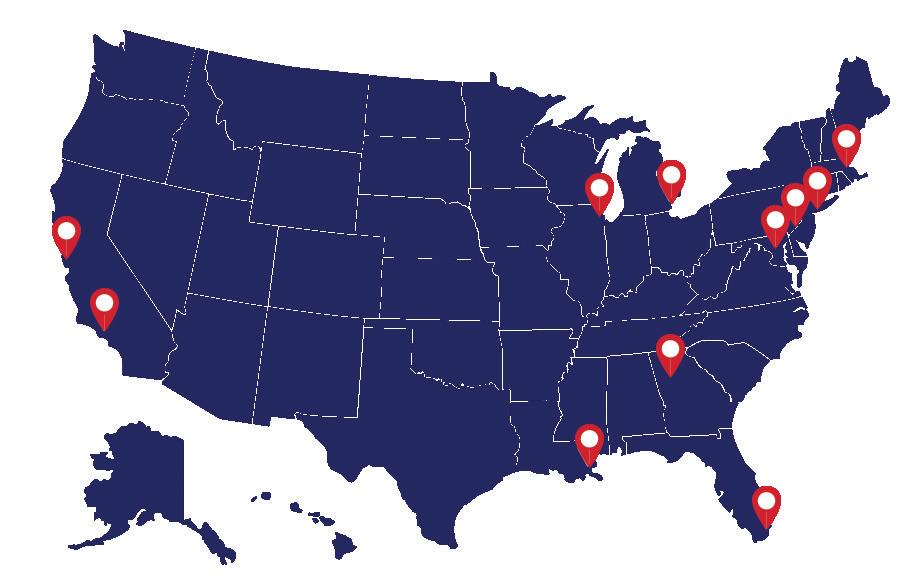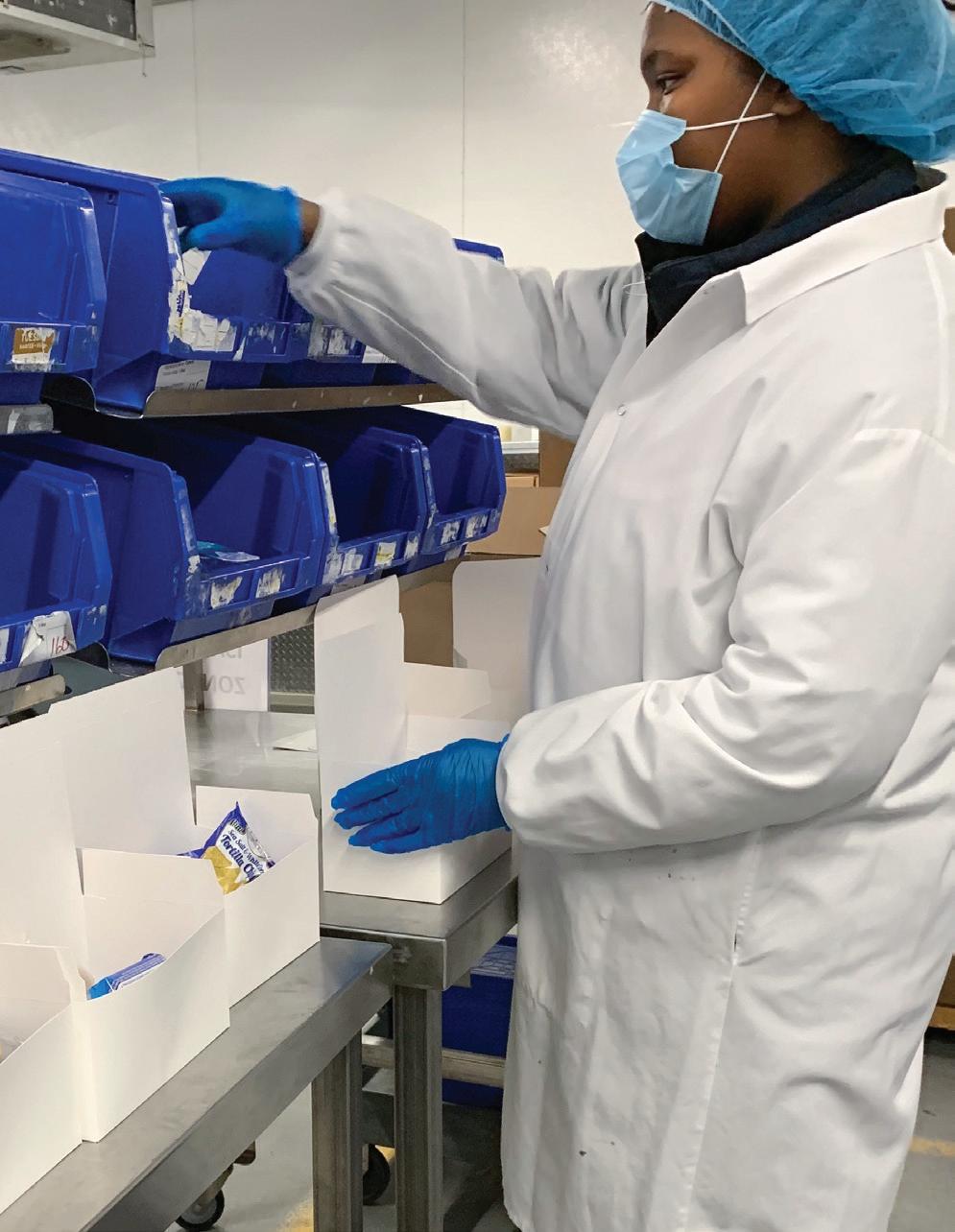
3 minute read
OUT OF THE GATE
Alumnus at Gate Gourmet Reroutes Airline Catering to Save Jobs, Fight Hunger
Few industries were hit harder and more suddenly by the coronavirus pandemic than commercial air travel. According to the International Air Transport Association, the industry projected a 50 percent plunge in year-over-year revenue as governments imposed travel bans and passengers canceled trips.
One person who saw the immediate effect firsthand is Greg Hughes, ’97, vice president of business development and operations support for Gate Gourmet Inc., based in Reston, Virginia. Since 1997, Hughes has served in a variety of roles at the leading global provider of airline provisioning and catering.
When airlines significantly reduced flights in March, Project Isaiah, the brainchild of investment banker and philanthropist Michael S. Klein, reached out to Gate Gourmet’s parent company, Switzerland-based gategroup, with a proposition to redirect resources for COVID-19 relief efforts in 11 of the hardest-hit U.S. cities, from Miami to Boston to Los Angeles.

With more than 30 operating units across the U.S. that typically produce tens of thousands of meals a day, Gate Gourmet had the infrastructure to safely prepare and distribute boxed meals to people in those areas. Project Isaiah would build relationships with local governments, nonprofits, senior housing facilities, domestic violence shelters, food banks and other community organizations to get the food where it was needed most.
Early in the partnership, airline catering and the supply chain found themselves with excess food when air travel abruptly declined. Hughes and his team mobilized Gate Gourmet’s operations and infrastructure in strategic locations, and the effort was fully operational by the end of March. Not only did the project help with community food shortage, but it also kept Gate Gourmet employees working. Devon Spurgeon, a leader for Project Isaiah, says the effort preserved hundreds of jobs and fed 2.6 million people.
“The biggest thing I’ve personally seen is how great it is for our people to go out and do good in the communities where we operate and serve — and also where our people live,” Hughes says. “When you’re doing good, it’s not hard to put on a smile; it’s not hard to do a little extra because you see the positive impact on people’s lives firsthand.”
Because they were starting from scratch, Spurgeon and Hughes didn’t have a playbook and did things differently in every location. They listened to local officials, civic leaders and community organizations in each city to understand where their pain points were and where they were struggling the most. Spurgeon says Gate Gourmet’s involvement in food assembly and delivery was crucial to help bridge the gap as other food-focused organizations were ramping up. In some places, the situation was dismal.
“Gate Gourmet’s willingness to engage and the empathy that Greg and the team showed all these strangers were extraordinary,” Spurgeon says. “We would not have achieved this kind of impact without them.”
Whereas Gate Gourmet’s typical model is for their top-rated chefs to work with airlines on designing menus, the pandemic called for a faster, simpler solution. Hughes was able to use what he learned about hotel and restaurant administration at UCM to utilize the supply chain to the best of his ability.
“I worked with my team to come up with menus that we would eat, that we knew our kids would eat, that we knew our families would eat,” Hughes says. “People receiving the food didn’t have the opportunity to necessarily reheat things or keep them cold … we had to get creative.”

Hughes says that, in addition to his education at UCM, his upbringing in Warrensburg provided him with a solid foundation, including a strong work ethic and the value of leading by example. Growing up the son of UCM Athletic Director Jerry Hughes, ’71, he was involved in the campus community from an early age, working summers at the Pertle Springs golf course, driving university President Ed Elliott and First Lady Sandra Elliott around, working at events and even dressing up as Mo, the university’s mascot. Hughes was wearing the Mo costume and standing behind Missouri Governor Mel Carnahan when the governor signed the papers making the mule the official state animal.
“Warrensburg is a small but very diverse community with the international students and people from all walks of life,” Hughes says. “It’s a small town and a small university, but together it’s a pretty unique combination; it’s hard to find someplace on the planet that’s quite the same. ... I was fortunate to have that experience, and it’s absolutely been foundational for my desire to be involved and help people succeed and give back.”




